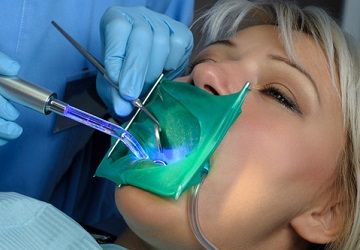More Patients Skipping Dental Care due to Cost
In a study recently published in Health Affairs, a group of researchers set out to better understand the financial barriers preventing American adults from accessing a wide range of healthcare services, including dental care.

While the fate of the Affordable Care Act is unknown, the program has already drastically improved access to medical services for many people who might otherwise not have contact with healthcare providers. However, access to dental care is covered only under a portion of the law, specifically pertaining to children on Medicaid. Dental coverage for American adults is not guaranteed. As a result, many adults have noted one common barrier they face when seeking out oral health care — affordability.
In a study recently published in Health Affairs, a group of researchers set out to better understand the financial barriers preventing American adults from accessing a wide range of healthcare services, including dental care. They used data from the 2014 National Health Interview Survey, which collected information from 112,053 adults and children.
Data was also utilized from the Oral Health and Well-being Survey, conducted by the American Dental Association’s Health Policy Institute. This survey collected responses from 14,962 adults and included questions related to oral health status, dental care coverage, and barriers to receiving dental care.
The researchers found that, regardless of age, the percentage of people reporting financial barriers as a deterrent to receiving dental care was higher than in any other type of medical specialty. In the study, 12.8 percent of non-elderly adults did not receive needed dental care because of the expense. Even among non-elderly adults with private dental insurance, 5.3 percent did not receive treatment because of finances.
Income levels were also taken into account in the study, and it was shown that those people with an income below the poverty level avoided needed dental care in the previous year, ultimately because of the cost. In contrast, less than 5 percent of individuals in the highest income bracket reported financial barriers to dental care.
According to the Oral Health and Well-being Survey, finances were 2.7 percent more likely to be cited as the reason for skipping needed dental care, compared to the next most common reason. Among adults who had not been to their dentist within the past year, 59 percent reported cost as being the reason they missed appointments.
The results clearly showed that the cost of dental care is the most common and most significant factor preventing Americans from receiving the dental care they need. Since dental care for adults is not considered an essential health benefit under the country’s current health system, the authors of the study suggested policy makers rethink mandates at both the federal and state levels to help remove financial pressures from those seeking care.
ACTIVA BioACTIVE Bulk Flow Marks Pulpdent’s First Major Product Release in 4 Years
December 12th 2024Next-generation bulk-fill dental restorative raises the standard of care for bulk-fill procedures by providing natural remineralization support, while also overcoming current bulk-fill limitations.